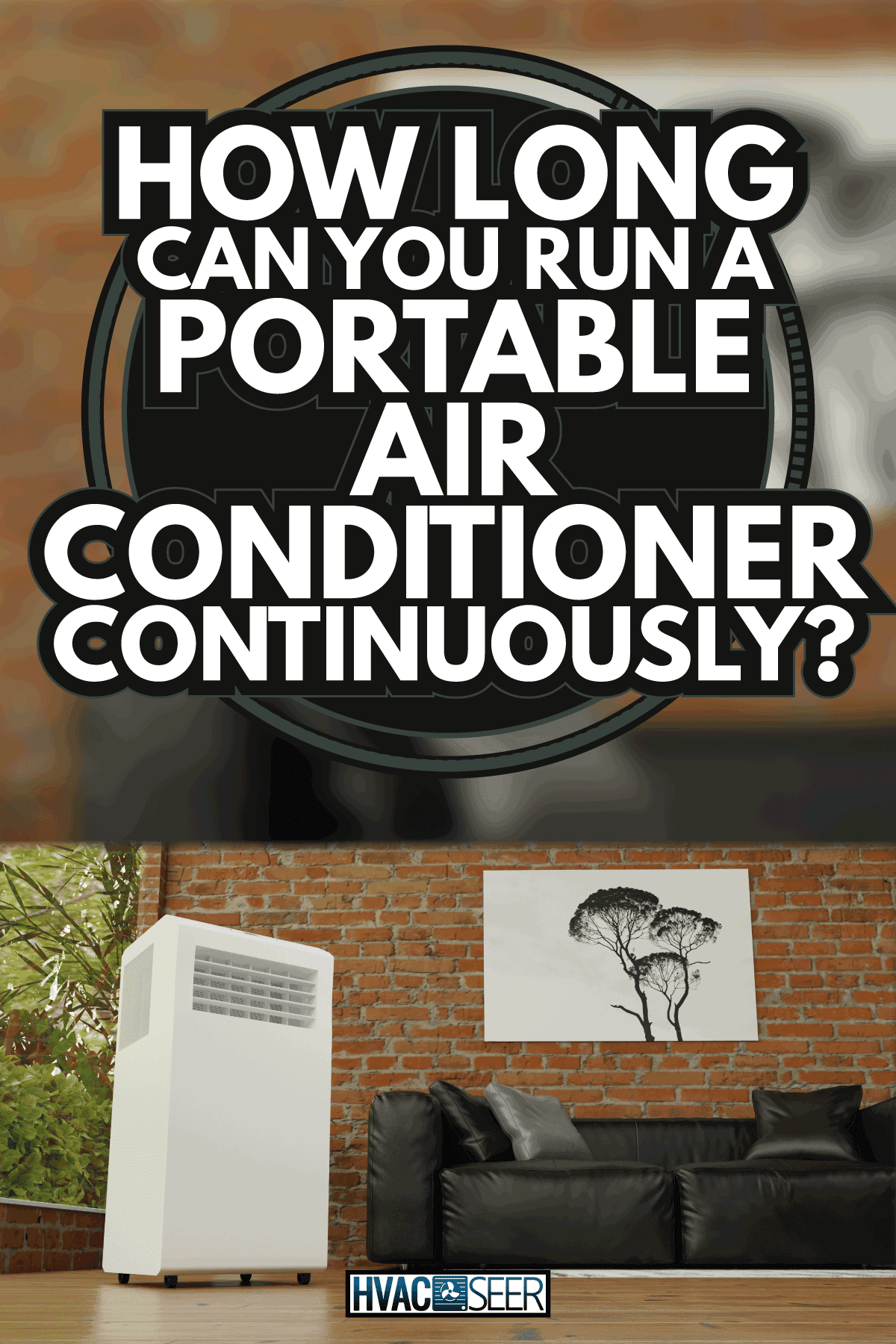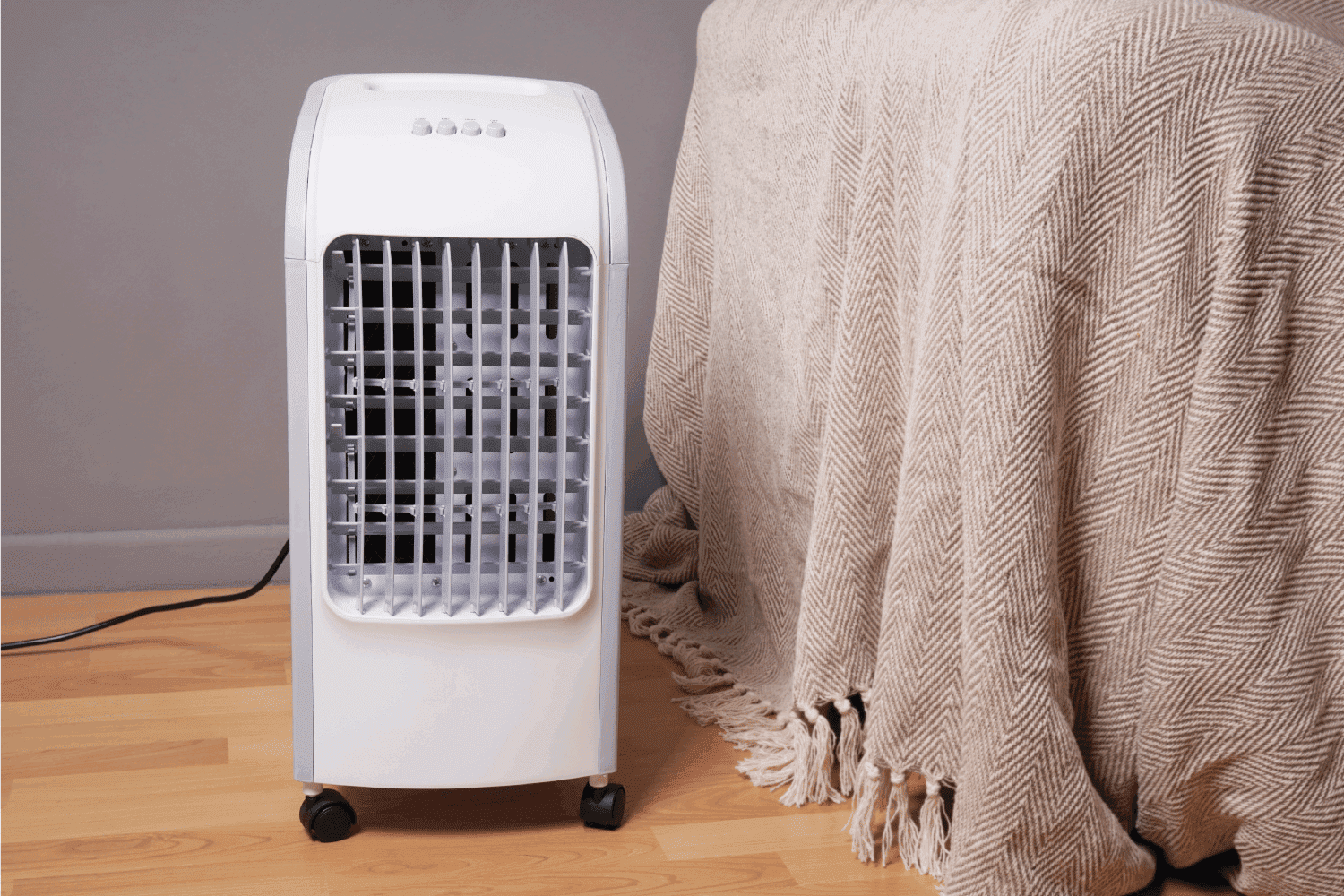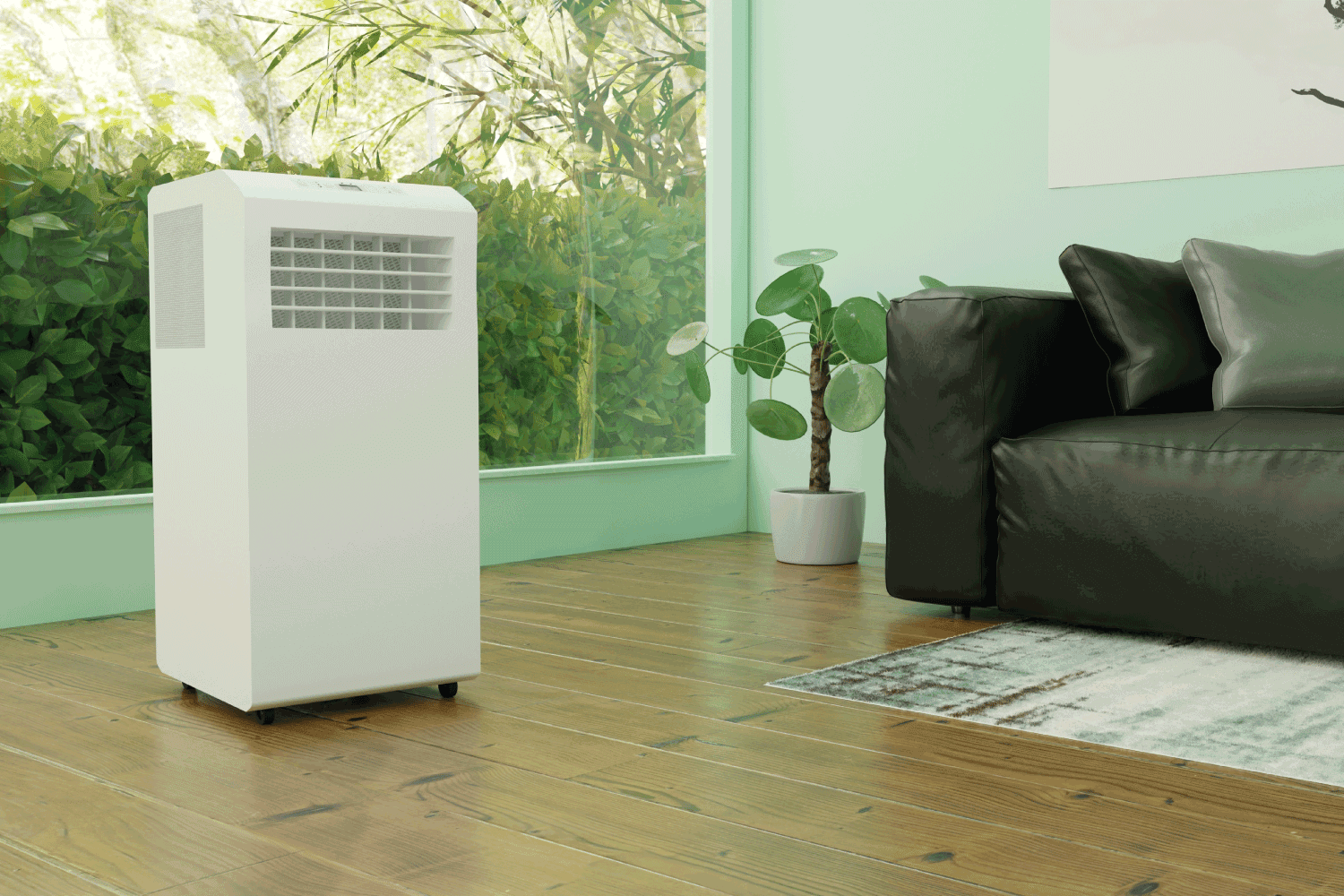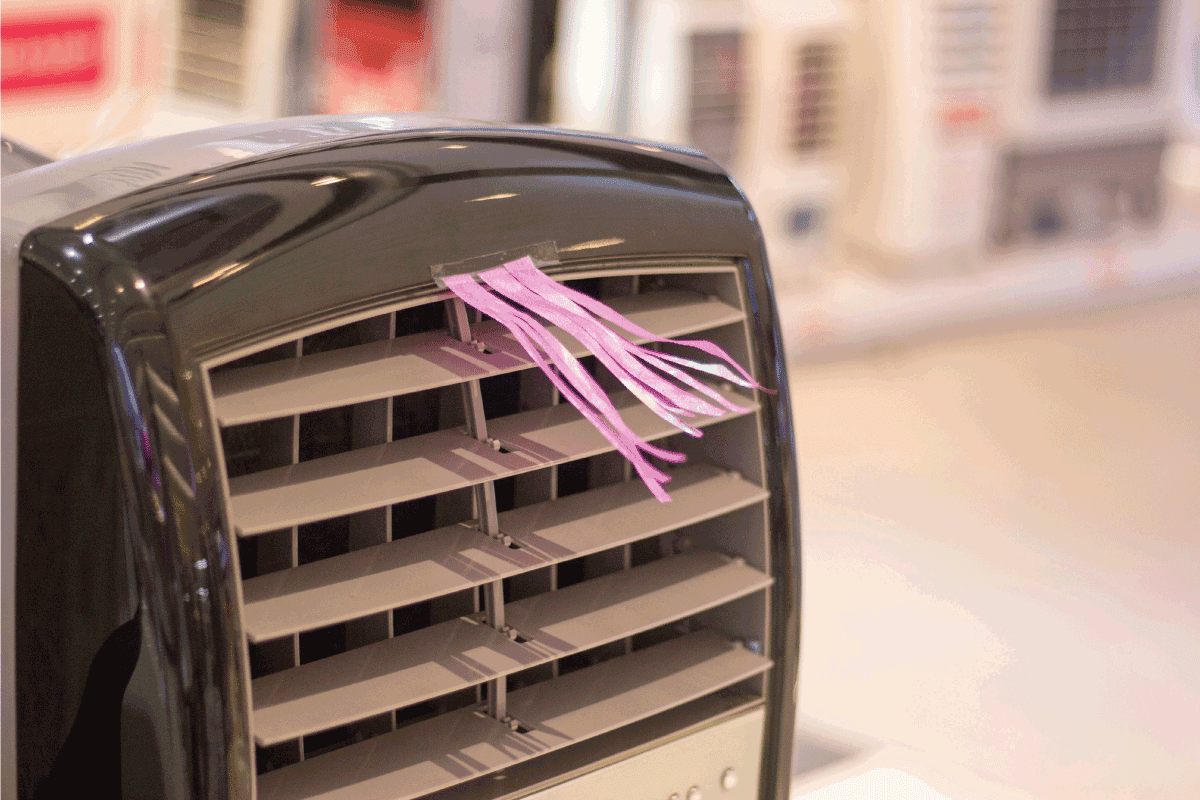If you live in a place with constant humid weather, the chilling blast of cold air that hits you upon turning on your portable air conditioner is enough motivation to leave it running 24/7. But how long can you really keep a portable air conditioner running without causing damage? Here's what we gathered after extensive research.
You can continuously run a portable air conditioner day and night. However, some key factors might determine the working duration of a portable AC. This could span from the size and capacity of the AC to electricity consumption, especially if your AC has a small inverter.
It is also essential to know that manufacturers produce portable airconditioners with different specifications. Keep reading to understand some of the factors responsible for the longevity of portable ACs. We will also shed light on detecting faults and maintaining ACs to prolong their longevity.

Should I leave My Portable Air Conditioner Running All Day?
Going with the design standards of portable ACs, it is meant to trip off as soon as it has accomplished an even temperature within its cooling environment.
With this, leaving a portable AC on has no negative effect whatsoever. But like any other electrical appliance, it would always be more efficient if given periodic rests.

Factors To Consider Before Leaving Your Portable AC Running All Day
Even though experts say it is safe to run a portable AC continuously, you should take note of caveats and some factors. Here are examples.
Amount of Energy Consumed
The total amount of energy consumed affects the use of this appliance, especially when it comes to the electrical bill accumulated at the end of the month.
You might have noticed that air conditioners tend to trip when the room's temperature becomes even. According to experts, the energy consumed at that particular moment is more than the total energy used throughout the working period without it tripping.
Consequently, if it tends to trip off more times because it has been on for long periods, it might increase your electricity bill.
That is why some people switch off their ACs whenever they notice the room's temperature has decreased, they then turn it on after a few hours. Read this engaging article to learn how long it takes a portable air conditioner to cool a room.
In addition, to be environmentally conscious, you might want to save energy as much as possible. Take note that some portable AC models may contain refrigerants that emit CFCs or chlorofluorocarbons to the ozone layer.
Size of the Room
The bigger the room, the longer the portable AC would need to work. Portable air conditioners usually run for 15 - 20 minutes, after which it trips, then starts to work again after some minutes.
This is considered the "rest" time of the AC. A scenario where the air conditioner works non-stop might result in overheating, which causes wear and tear.
Making sure the capacity of the AC synchronizes with the size of the room is essential. With this considered, the air conditioner would work smoothly.
If you prefer your portable AC turned on for most of the day, then the capacity of the AC should correlate with the size of the room it cools.
Maintenance Duration
All electrical appliances require frequent maintenance, and a portable air conditioner is no exception. It is essential to maintain the most exposed parts of the appliance regularly.
The filter is one of these parts, and the more exposed the filter is, the more it gets clogged with dust.
This means using your portable air conditioner for extended periods would mean it needs to be serviced regularly, especially if you live in areas with lots of dust.
If you use your portable AC more frequently than the average user, make sure to have its filters cleaned out at least once a week.
To know if the maintenance of a portable air conditioner is due, you will need to watch out for the following signs.
1. Excessive Noise
If there is a change in the usual sound coming from your portable AC, it needs to be checked right away.
This might indicate that a part is broken, malfunctioning or a significant part of the AC needs replacement. It should be serviced right away to avoid further damages.
2. Unusual Smell
There could be so many reasons why your portable AC could start oozing a bad odor.
When dust and droplets of water accumulate on the AC duct, the build-up tends to decompose after a while. They also give bacteria and fungus room to grow, which creates an offensive smell.
It could also be because a dead insect or animal is stuck in the AC. When an insect, for example, is trapped and does not find its way out, it eventually dies. After some time, it decomposes and starts to smell.
Whichever case it is, it all points to the fact that you need to set aside time to clean and inspect your appliance thoroughly.
3. Accumulation of Water in Unusual Parts
If you notice that your AC is dripping from unusual parts, it would be wise to have it checked by professionals. The AC is designed to stay dry no matter the environment.
Whenever some parts start to leak, there might be an underlying issue. This article talks about possible issues that might be responsible for leakage in your portable AC.
What Happens If You Don't Drain Your Portable Air Conditioner?
There are several repercussions for not draining your portable air conditioner properly, except your type of portable AC uses hot air during evaporation and condensation.
If your AC uses the bucket system or has a pathway already created for the passage of residual water, it is vital to ensure that you regularly drain the bucket or container.
Without proper drainage, the residual water coming out from the AC could fill the bucket then start to overflow. This could lead to spillage. Microbes can then start to grow, exposing you and your family to health hazards.
Tips To Make Your Portable Air Conditioner Last Longer

Strategize the Position of your Portable Air Conditioner
A portable air conditioner's ability to operate more cost-effectively loosely depends on where it is placed.
Portable air conditioners are best positioned near a power outlet and a window for ventilation and drainage purposes, respectively.
Also, keep your exhaust pipe short and straight to avoid clogging it up with lint. If possible, avoid placing the portable AC in a location that receives a lot of sunlight.
Ensure There is No Source of Heat in the Room
To keep your portable air conditioner running at its best, avoid using a lot of electrical appliances in the same space. Air conditioners struggle to cool off a room rapidly because of the heat emanating from other electrical appliances.
If you don't need it, turn it off! Low-humidity areas are also an excellent place to keep your portable AC. The greater the relative humidity in the space and around the AC unit, the more condensation it will produce.
Constantly Clean the Room
A dirty room is one of the most prevalent causes of a decreased life span of a portable AC. When filters become clogged up with dust or hair, it reduces the performance of the AC system. This might lead to overheating and total damage if the filters aren't cleaned regularly.
Shut Windows and Doors
When the air conditioner is on, it is strongly advised that you shut all windows and doors. This will maintain the room's temperature at a comfortable level.
Leaving the windows open reduces the cooling effect and puts more strain on the air conditioner. If the air conditioner is under strain, it may get damaged sooner than usual.
To ensure that the temperature is evenly distributed, it's best to leave the door closed. Although sometimes, leaving it open might allow complete circulation.

Final Thoughts
On hot afternoons, turning on your portable air conditioner is one way to keep cool air circulating in your home.
However, be mindful that leaving your appliance running non-stop also comes with disadvantages. Some examples would be a hike in your electricity bill or a regular need for maintenance.
Always remember to drain your portable AC regularly to avoid spillage and a putrid smell resulting from bacteria accumulation. A keyword you should always keep in mind is maintenance, because how well you manage your appliance would go a long way to determine its life span.
